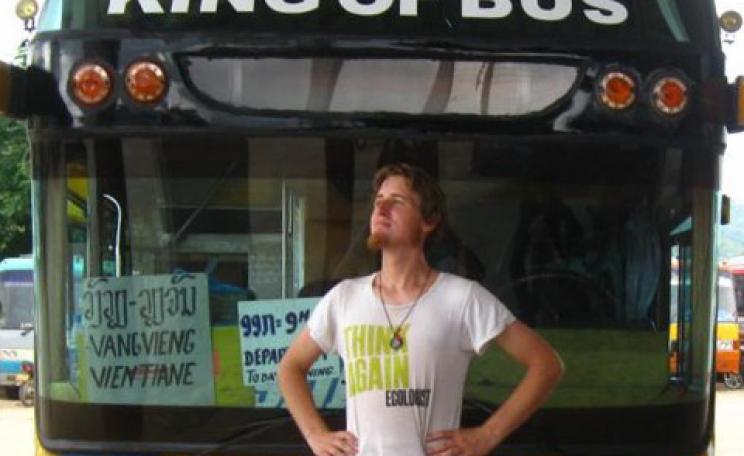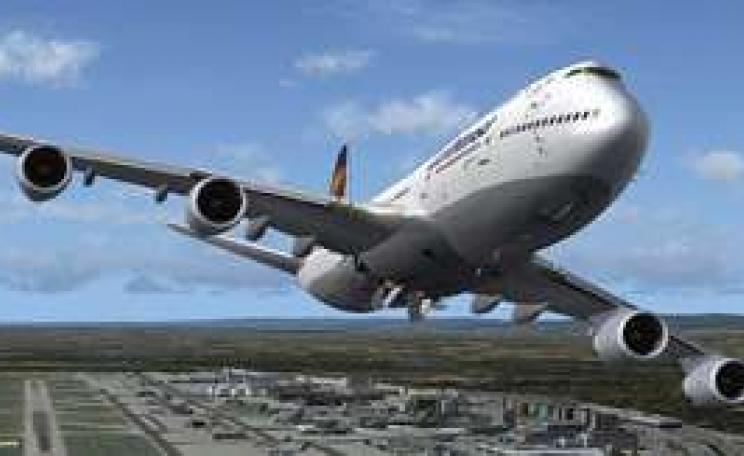There really is a space for tourism done well, and an urgent need to talk about it
We wrote a few articles on topics such as the draining of Spanish water tables for golf courses but we never really looked at whether there might be such a thing as 'good' tourism. Despite the growth in popularity of 'ecotourism' during those years, I remember just one article on the subject.
Yet I always loved travel, and spent much of my life before the Ecologist exploring the world. Furthermore, two of the experiences which had the most lasting impact upon me while at the magazine were as a result of travelling - first when I went away on an Earthwatch volunteer trip to the Bahamas to monitor whales and dolphins, and second when several of us from the magazine attended the Salone del Gusto Slow Food Festival in Turin. These experiences of meeting people involved in other ways of living, of seeing first hand why conservation, wildlife protection and biodiversity matter have stayed with me and changed the way I act and think far more than anything I have ever read about or seen on TV. While it is true that modern technology enables us to visualise and communicate in ever more powerful ways, there is still no replacement for actual experience.
So when I left the magazine in 2007, I decided to do something about my dilemma, namely find out for myself. Teaming up with Richard Hammond, who runs Greentraveller.co.uk (rather than being the bloke from Top gear), we set off to research and write a book on green and socially aware tourism from round the world.
For the following year and a half we both travelled and wrote, each visiting hundreds of people and places all over the world, ranging from remote homestays with hilltribes in Bangladesh to luxury ecolodges on the South African Cape. Yes, I flew occasionally. I also travelled by train from Inverness to Vietnam. I travelled by horse and stayed with nomads in Mongolia. I trekked through Thailand, India, Romania and round the outskirts of London. And thanks to the people I met, the projects I saw and the experiences I had, I came away with the belief that there really is a space for tourism done well, and an urgent need to talk about and promote it.
For one, tourism not going to suddenly go away. It is the world's largest service industry, with 900 million arrivals in 2007. And as the world's population grows, and as parts of those populations in countries such as India and China grow richer, there are each year more and more tourists on the roads, rails and in the air. Furthermore, so called ecotourism is one of, if not the, fastest growing sectors in the industry, yet it is largely unregulated - unlike products labelled 'organic' or 'fair trade' for example, where I have to meet a set of parameters; if I want to call my lodge an ecolodge, all I have to do is stick the letters 'eco' on the front. Greenwash is therefore rife in the industry.
So, over the following months, I will be looking at many of the issues surrounding tourism's future from carbon offsetting to conservation; the destruction of local uniqueness versus the preservation of local culture. I'll tell some of the stories I have learned that inspire me, and talk with people from across the world working to make tourism more equitable, be they working with communities in Thailand to rebuild after the tsunami or running the world's first national Fair Trade tourism scheme in South Africa. And I'll start off, in 2 weeks time, by looking at the elephant in the room, although it's more Jumbo than Dumbo. Flying.
Jeremy Smith is the former editor of The Ecologist. His first book Clean Breaks - 500 New Ways to see the World' (co-authored with Richard Hammond) is due out this August, published by Rough Guides.







